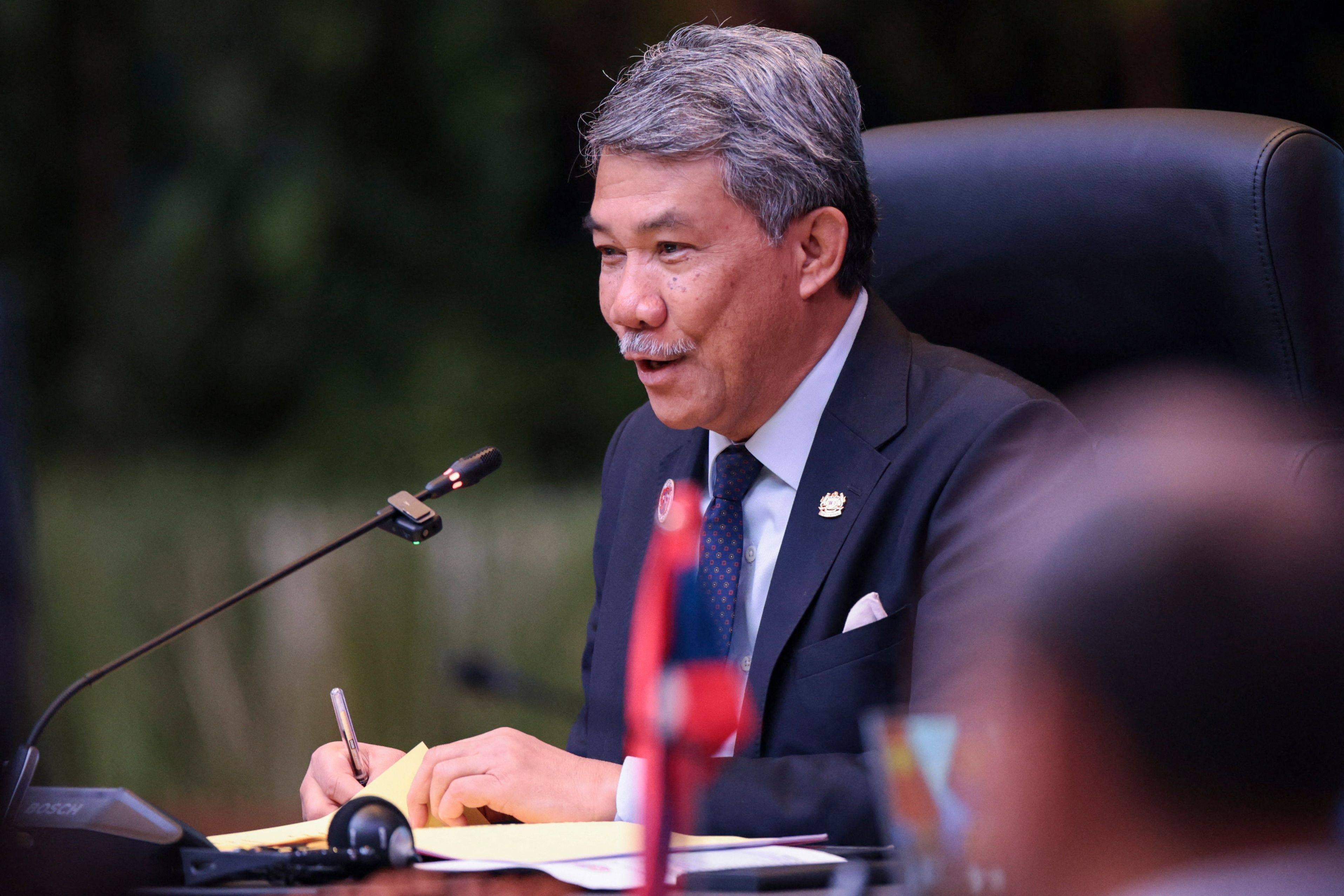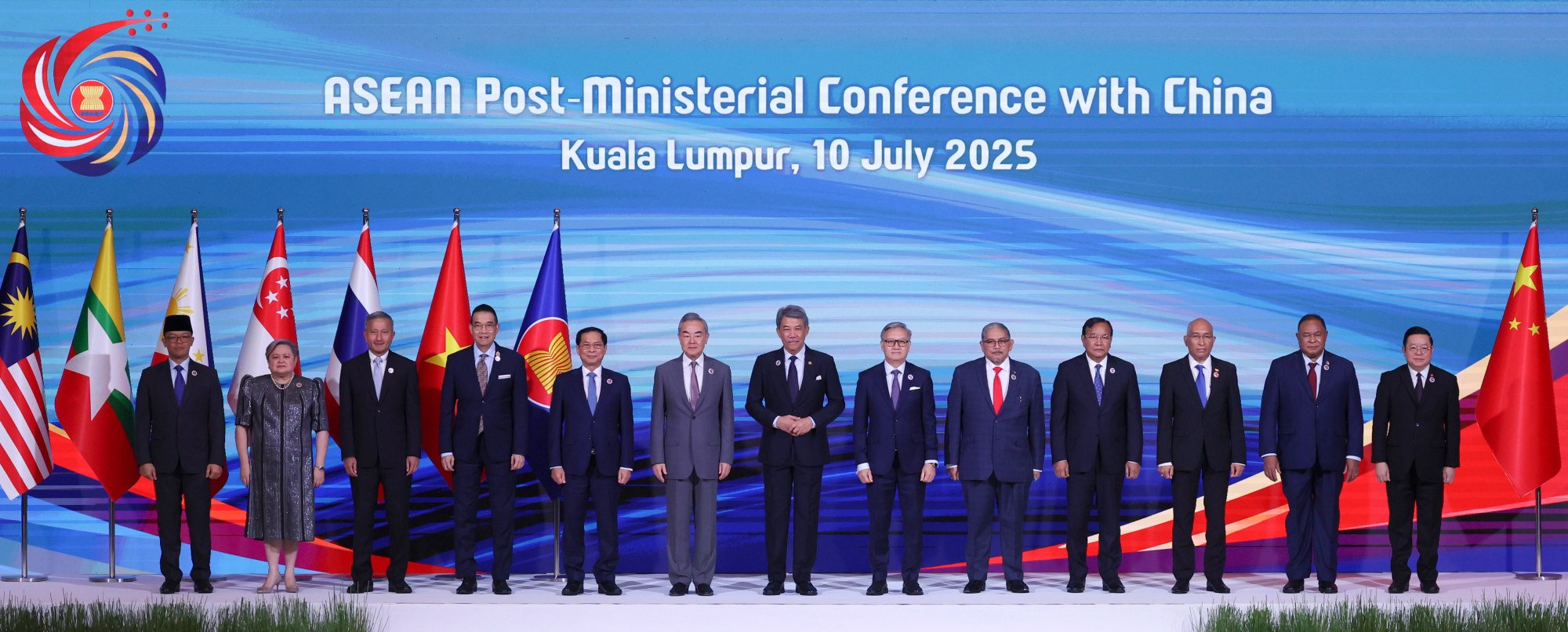Asean calls for ‘wisdom and prudence’ in South China Sea
Malaysia’s foreign minister underscores the importance of peace and security in a region increasingly sandwiched between the US and China

The Association of Southeast Asian Nations on Thursday urged all parties to act with “wisdom and prudence” to uphold peace and security in the South China Sea, warning that any disruption to the vital waterway could have a disastrous effect on global trade.
Escalating trade and technology tensions between the United States and China have put Asean member nations under increased pressure to pick a side.
Asean has long been reliant on Washington as a security counterbalance to Beijing’s expansive claim over the South China Sea, even as the region leans closer to the Asian superpower to bolster trade and cushion the blow from punishing American tariffs of up to 40 per cent that US President Donald Trump has said will kick in on August 1.
But Southeast Asia faced real risks from increasing global uncertainty and geopolitical tensions, which could shake the region’s peace and stability, Asean warned on Thursday.

“We must therefore ensure that geopolitical tensions do not escalate or threaten to undermine security and global trade in the South China Sea,” Malaysia’s Foreign Minister Mohamad Hasan said in his opening remarks at the Asean-China meeting in Kuala Lumpur.
“Towards this end, Asean calls on all parties to manage the situation in the South China Sea with wisdom and prudence.”
The waterway is at the centre of long-standing territorial disputes between several Asean members and China, which has been pursuing an expansive historical claim carved out under a contentious 10-dash line map.
About a fifth of total global trade, estimated at more than US$3.5 trillion annually, passes through the South China Sea – centrally located in Southeast Asia.
Mohamad said the bloc welcomed progress in negotiations with China on the Code of Conduct (COC) in the South China Sea, which Asean has been pursuing for more than two decades to set common terms of engagement over conflicting territorial claims.
“We are confident that with the full commitment of all parties in the negotiations, we should be able to conclude an effective and substantive COC, in the not-too-distant future,” he said.
Asean’s top diplomats are set to hold a marathon series of talks with their counterparts from partner nations on Thursday, on the sidelines of the Asean Foreign Ministers’ Meeting.
China, represented by Foreign Affairs Minister Wang Yi, was the first to meet the bloc.
Unhandled type: inline-plus-widget {“type”:”inline-plus-widget”}
Asean foreign ministers will also hold meetings with Russian Foreign Minister Sergey Lavrov and US Secretary of State Marco Rubio, as well as top diplomats from Australia, Canada, New Zealand, Japan and South Korea.
Rubio, the most high-profile US official to visit Asia since Trump’s return to the White House for a second term in January, is also set to meet Malaysian Prime Minister Anwar Ibrahim on Thursday afternoon.